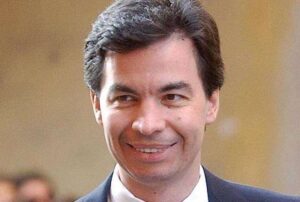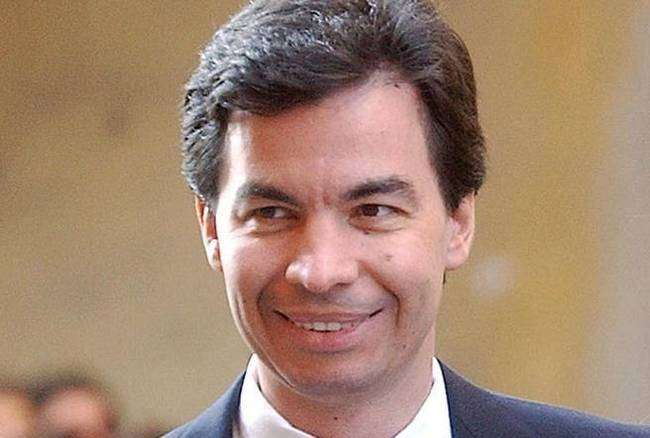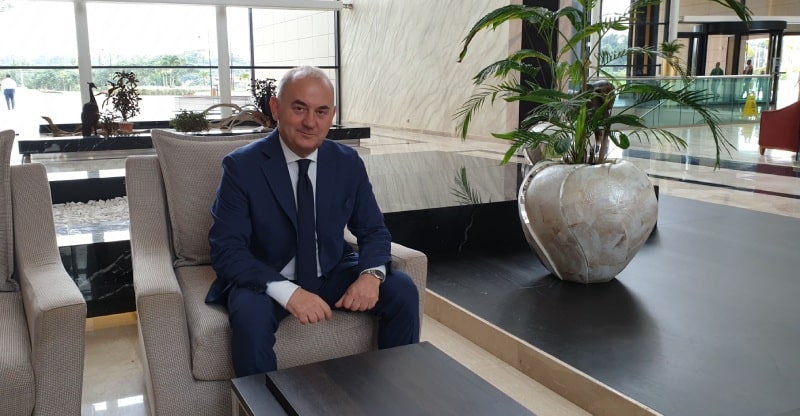by Ennio Bassi

From innovation to entrepreneurship, Angelo Moratti outlines his vision of a new capitalism – no longer driven by ego, but by ethics, creativity, and storytelling. His reflections, gathered in an interview with Lampoon, challenge the myth of the untouchable entrepreneur
by Ennio Bassi
The “fable” that Angelo Moratti told at the latest edition of Tech.Emotion is still making headlines: an intervention that sparked debate in the worlds of business and technology, both in Italy and abroad. In recent days, Lampoon Magazine interviewed him, offering a deeper look into his vision of contemporary entrepreneurship. His stance is both a critique of a certain way of practicing capitalism and an invitation to embrace a more human economic model: one built more on ethics and sustainability, and less on power and the accumulation of wealth.
That is why, a year after leaving Saras, his family’s oil company, Moratti chose to focus on what he defines as purpose-driven capitalism. As he explained to Lampoon, today’s economic model is increasingly dominated by ego, spectacle, and an erosion of ethics. His suggestion for correcting this course lies in fostering dialogue rather than confrontation, where the quality of storytelling makes the decisive difference.
The parable Moratti narrated at Tech.Emotion revolved precisely around this: God looks down at Earth and sends a few “angel entrepreneurs” to build a better society. These visionaries—reminiscent of the founders of Amazon, Meta, and Tesla—begin with noble intentions, putting technology at the service of the common good. But as their success grows, vanity sets in. The mission becomes hollow, replaced by self-worship. Fame eclipses vision. The original purpose is lost.
“Power and fame are powerful aphrodisiacs,” Moratti told Lampoon. “They separate you from life.”
Yet his approach avoids direct attacks. Labeling billionaires as “oligarchs” or “technocrats,” he argues, only raises their defenses. Storytelling, instead, softens the message and makes it more effective. He recalls how some Silicon Valley contacts, after hearing his parable, wrote to him: “You know what, you’re right?” Only those closest to the Trumpist camp, he noted, remained silent.
For Moratti, the future lies in a capitalism reformed from within. He cites the Giving Pledge, launched by Warren Buffett and Bill Gates, through which billionaires commit to donating most of their wealth. “It didn’t come from the State,” he notes. “It came from insiders, trying to humanize the system.”
Through his firm Angel Capital Management, Moratti supports young entrepreneurs guided by ethics rather than purely financial returns. In collaboration with Italian bank Ifigest, he is building an international hub for purpose-driven innovation. “The best ideas today come from people in their 20s and 30s,” he told Lampoon. “They’re young people who want to generate value, not just profit.”
His vision is pragmatic: not every company has to save the world. He points to Miscusi, a pasta chain with affordable prices, and De Santis, a historic Milanese sandwich shop, as examples of businesses with concrete meaning—bringing joy, community, and daily dignity. On the opposite side, he spares no criticism for brands like Shein, which he sees as symbols of predatory capitalism. “They are destroying it,” he warns, “through labor exploitation, tax avoidance, and disposable products.”
After leaving Saras, Moratti says he feels freer to build brands with strong character, capable of evoking the spirit of Italy in the 1970s, when Versace, Fiorucci, and Armani were not just labels, but values. Today, he sees that same spirit re-emerging in food, cosmetics, and lifestyle brands that truly connect with people.
The success of his investment in Rhode, the beauty brand founded by Hailey Bieber and sold for over one billion dollars, is one such example. “Is there purpose in a lipstick? Not always,” he reflects. “But if it speaks to a generation and carries a positive message, then yes, it has meaning.”
For Moratti, what defines a purpose-driven company is not always its mission, but its significance. “You can build a sustainable brand, but if you can’t connect emotionally with customers, it won’t last.” He cites the case of Allbirds, the eco-friendly footwear brand: “They focused too much on purpose and too little on storytelling. Their value collapsed. I’d love to help them rediscover their meaning.”
And what about the tech giants? Can they return to a capitalism with conscience? Moratti is skeptical. “If a company makes a billion by spreading lies, does it have any incentive to change? Of course not.”
Having seen firsthand how success can corrupt, Moratti does not mince words: “You make money, then ruin your life chasing yachts and youth. It’s childish. And pathetic.”
For him, the remedy is simple but rare: discipline and conviction. “Every day you need to remind yourself that power and fame are temporary illusions. They don’t define who you are.”
In an era obsessed with scale and disruption, Angelo Moratti proposes something more intimate—and perhaps more radical: an economy guided by conscience, rooted in human experience, and fueled by the world’s oldest force—storytelling.
(Associated Medias) – Tutti i diritti sono riservati
L’articolo Angelo Moratti: “Capitalism must have a conscience” proviene da Associated Medias.







